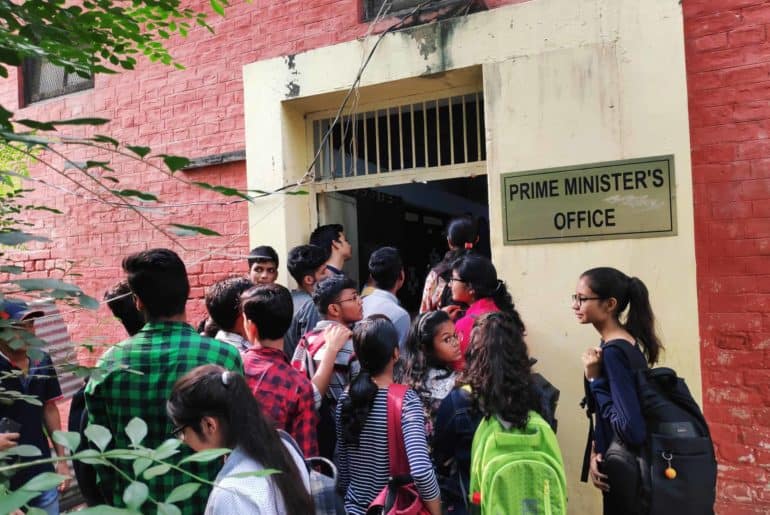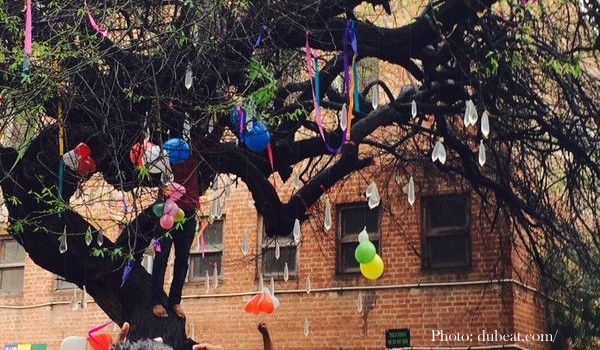The Cluster Innovation Centre (CIC) is an institution of University of Delhi, established in 2011. Based on interdisciplinary learning, it has been designed to seek and derive answers to the real world problems in all spheres, and look for innovative solutions for problems of the society.
It is a Meta College as well as a Meta University concept with an innovative curriculum, which is more project-oriented and tailored to the need of the society and industry.
Located in the quaint premises of Rugby Sevens Building, University Stadium in North Campus, it is a promising course for students who wish to seek the connect of research with its practical application.
COURSES OFFERED AT CLUSTER INNOVATION CENTRE:
Currently there are three courses offered at CIC-
- B.A. (Honours) Humanities and Social Sciences
- B. Tech (IT and Mathematical Innovations)
- M.Sc. (Mathematics Education)
SEAT MATRIX FOR B.A. AND B. TECH COURSE:
In 2019 – 20 there will be 44 seats each in both the courses. They are distributed as:
General Category – 20 seats
EWS – 2 seats
OBC Category – 12 seats
SC Category – 7 seats
ST Category – 3 seats
Apart from these there are 6 supernumerary seats distributed as:
PwD Category – 2 seats
CW Category – 2 seats
Foreign Nationals – 2 seats
- B.A.(Honours) Humanities and Social Sciences
This is an off-beat course compared to other regular honours programmes offered by University of Delhi. It is based on interdisciplinary learning, which presents an opportunity to the student to design his/her own degree.
This course is divided into four streams:
- Journalism
- Counselling
- Historical Tourism
- Art & Design
Based on these four streams a student can study a variety of subjects offered in different colleges of University of Delhi in semesters two to five, and study some basic courses at the centre itself in semester one and six. Apart from the core papers, the distinctive aspect of the curriculum is the hands-on research project, which gives the students a grass-root level experience of the functionality of the society.
One can schematically study Political Science at Hindu College in one semester and Economics at SRCC in another! The interdisciplinary nature of the course gives a holistic view in the field of humanities and social sciences.
Commenting on the course, Rishabh Gogoi, a third year student of CIC says, “It’s unlike any other course in the country, and a much needed alternative in an otherwise restrictive education system. We all know the efforts of the University of Delhi to enhance the flexibility of its course structure through the Credit Based Credit System (CBCS). The course at CIC takes the same concept several steps ahead to present its scholars an absolute freedom to design their own degree. Although there are a number of nuances associated with the aforementioned “freedom”, but regardless, the B.A. course at CIC is undoubtedly the best decision any indecisive student can make who wants to study humanities and/or social sciences.”
Niharika Dabral, an outgoing student of CIC reminisces her experience at CIC as, “I would never change my experience at CIC for anything. It’s a college experience like none other. Since I’ve survived the project presentations I think I can survive anything. It has been intense.
There are so many things that have to improve, but that University stadium is comfort. Four colleges in six semesters is bound to make one like a nomad, but today I’m more independent than ever.”
However, a person may feel detached and have a certain sense of instability due to changing colleges in each semester, from semester two to five. It may not be the best fit option for students not willing to feel so. But this rigorous course would surely develop leadership qualities and improve one’s perspective towards humanities and social sciences.
- B. Tech (IT & Mathematical Innovations)
Cluster Innovation Centre offers a four-year B.Tech. programme in Information Technology & Mathematical Innovation.
According to the official website of CIC, “The B. Tech course offered is a unique programme, is designed to inculcate an innovation mind-set as part of the curriculum and pedagogy. Building strong analytical skills through Mathematics and application skills of Information Technology (IT), this course encourages students to recognize the connectedness of various disciplines.”
The streams offered in the B. Tech programme are-
- Robotics and Embedded Systems
- Economics and Management
- System Biology
The innovation lab known as the “Engineering Kitchen” is the place where students carry out hands-on projects, experiments and model implementations which are linked to the curriculum.
Yatharth Rai, a third year student from B. Tech. says, “The curriculum, although hectic, is quite flexible. The three minor streams grant a clarity. There is a focus on practical applications, rather than theoretical expertise. Each paper in the semester has an accompanying project. I personally find these projects extremely beneficial as they provide an outlet to the theoretical concepts learnt during the semester paper.”
The B.Tech course offered is comprehensive with a special emphasis given on practical learning. In last semester of the course i.e. 8th semester, the programme is based on industrial internship to give students the necessary work experience.
Unlike other B. Tech courses, a student of Arts or Commerce having Mathematics and English can apply in the B.Tech (IT and Mathematical Innovations) course on the condition that he/she fulfils the eligibility criteria as laid down by the Cluster Innovation Centre.
- M.Sc. (Mathematics Education)
It is a meta-university concept, which offers a two year post graduate programme jointly offered by University of Delhi and Jamia Milia Islamia. The course is developed to give students theoretical as well as hands-on experience of mathematics education.
There are total 20 seats in the programme distributed as:
University of Delhi: 10
Jamia Millia Islamia: 10
Seat Matrix:
Source: www.ducic.ac.in
All the three courses offered at Cluster Innovation Centre are uniquely designed and promote hands-on learning in addition to building theoretical concepts. Therefore, these courses offer a different experience of academics altogether.
Selection to these courses is based on an entrance test which is to be conducted by National Testing Agency (NTA) this year.
The entrances for the Undergraduate and Postgraduate programmes are to be conducted between 30th June, 2019 – 6th July, 2019.
Feature Image Credits: www.ducic.ac.in
Sriya Rane
















